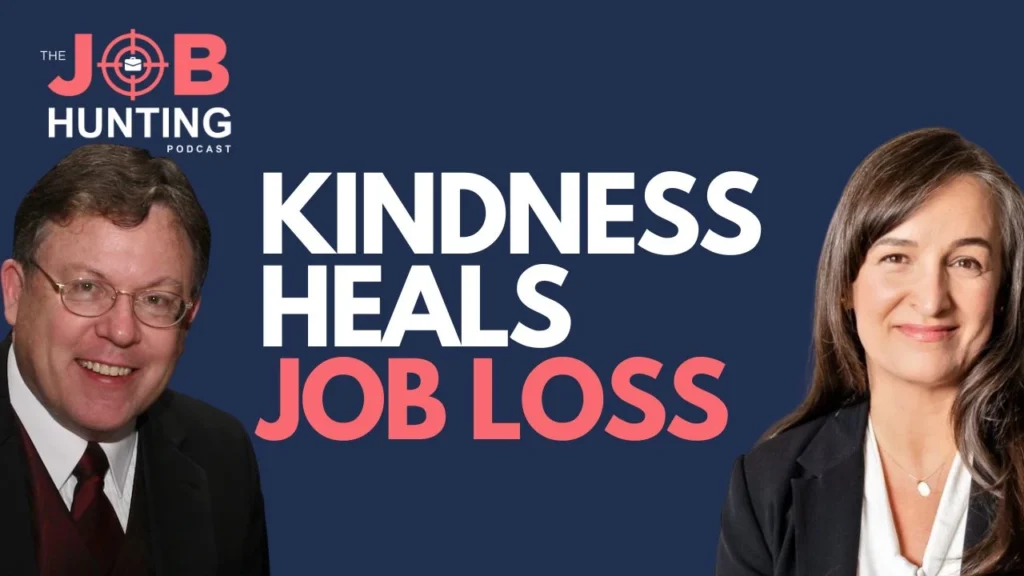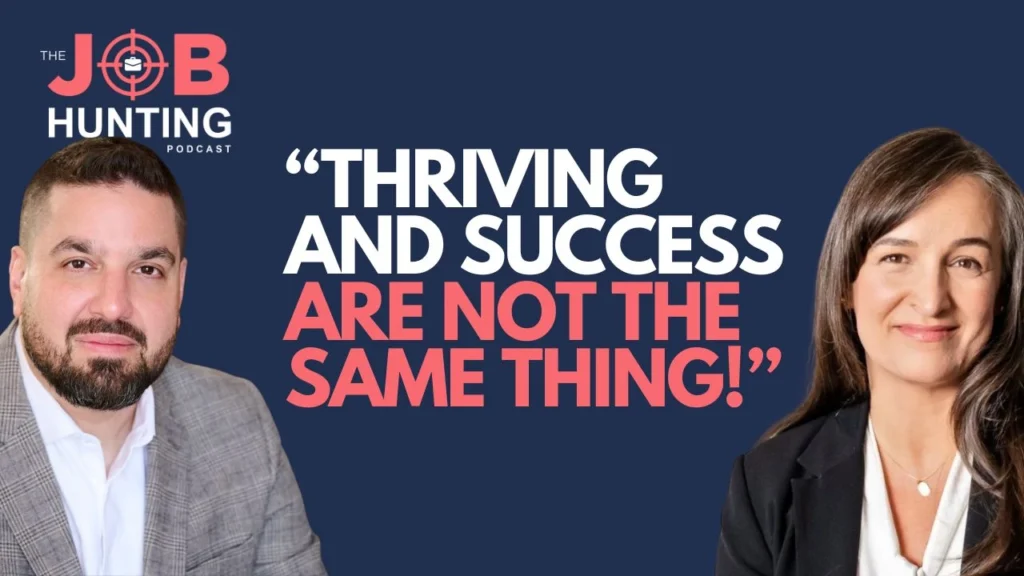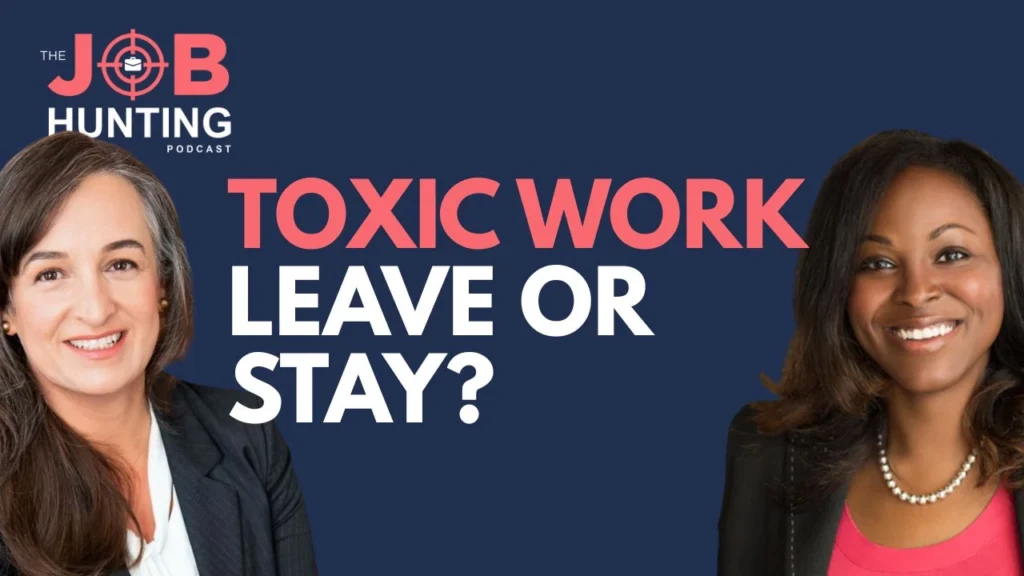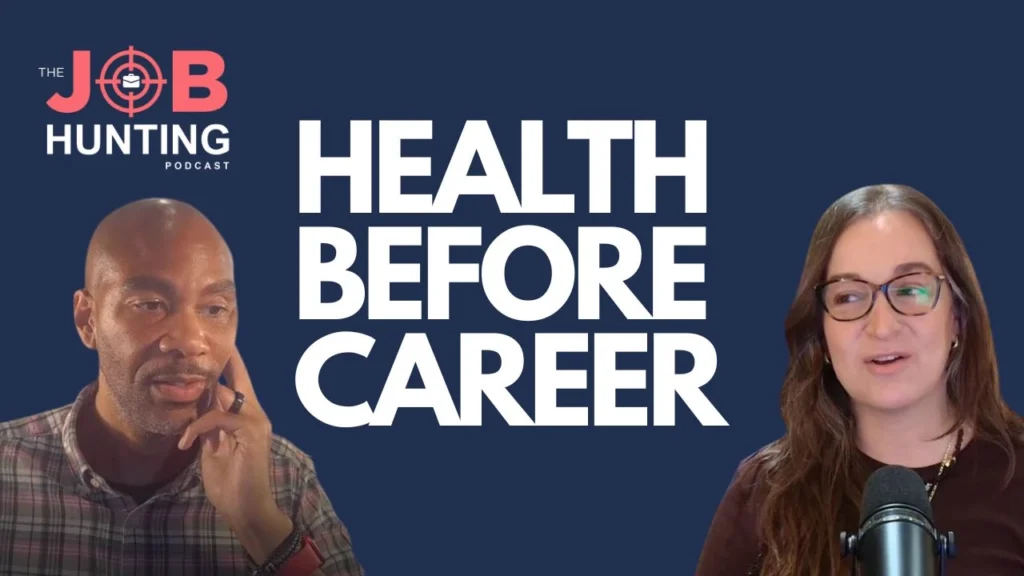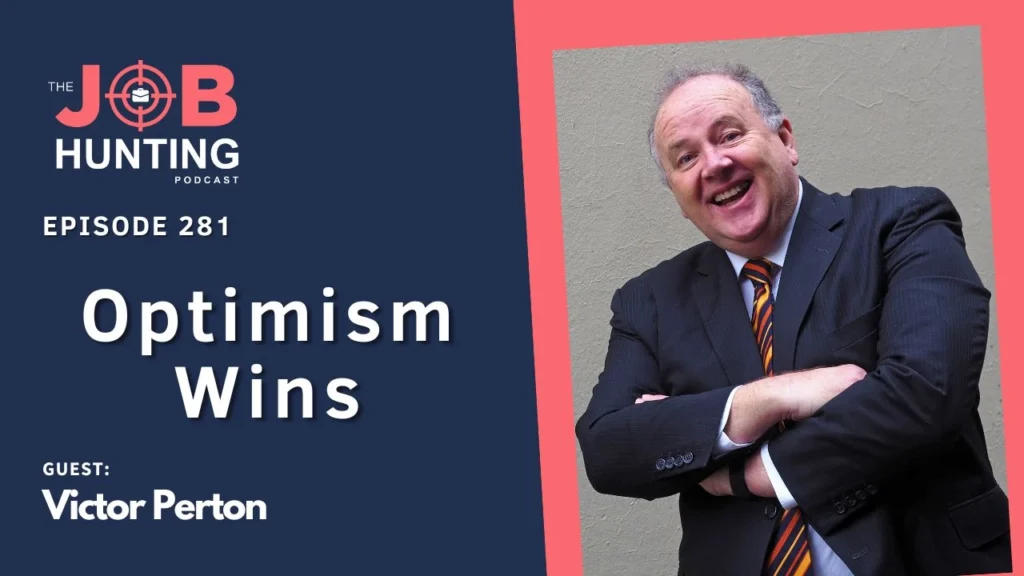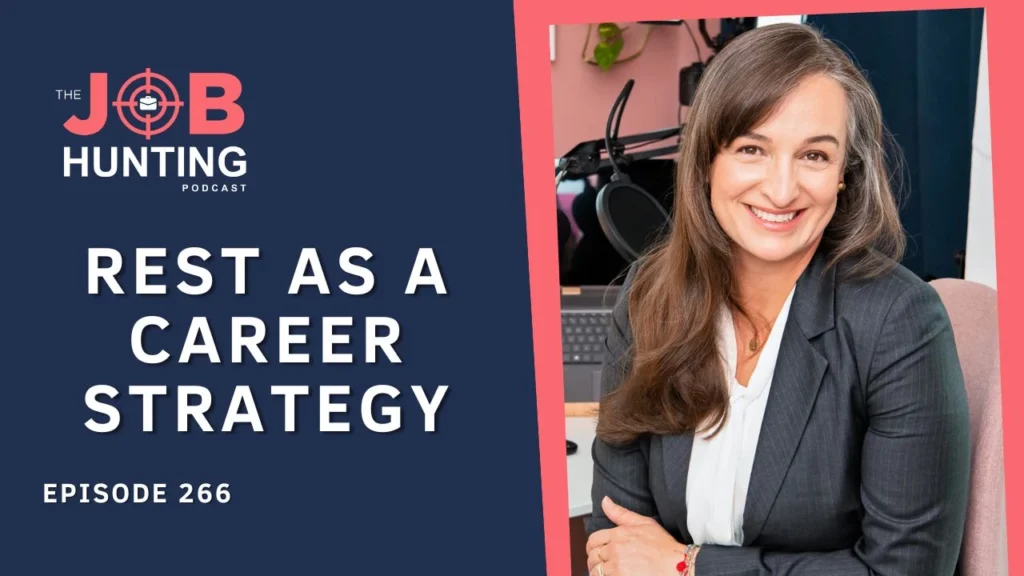Burnout and Ambition: Why Rest Is a Smart Career Move
Episode 325 - In a world that celebrates hustle, rest can feel counterintuitive. But for ambitious professionals, learning to pause is not optional. It’s a strategic necessity.
Rebroadcasting as Episode 325 during our holiday break, this episode (originally released as Episode 298) continues to be one of the most practical and impactful guides for professionals feeling burned out at work.
If you’ve spent the last few months feeling more exhausted than usual, struggling to focus, or wondering why your motivation has gone missing despite a looming job application or promotion deadline, you’re not alone. In my coaching work with experienced professionals, these themes are everywhere. And they’re not the result of laziness, lack of ambition, or poor time management. They are the hallmarks of burnout, which is now a routine part of corporate life.
Burnout isn’t new. But its spread among high-performing professionals is growing quieter, deeper, and more normalized than ever. The World Health Organization gave it official status as an “occupational phenomenon” in 2019, describing it as the result of chronic workplace stress left unmanaged. Yet the language around burnout still lags behind the reality: many professionals don’t realise they’re burning out until their relationships suffer, their health declines, or their job search stalls despite their best efforts.
You don’t need to be working in a hospital during a pandemic to feel burned out. Today, it’s just as likely to show up in the corner office, the Zoom window, or the resume file named “final_final_FINAL.pdf”. From senior executives navigating hybrid workplaces to job seekers attempting to “optimize” every aspect of their applications, the common thread is emotional depletion disguised as diligence.
And the real danger? Burnout thrives in silence.
A Systemic Problem, Not a Personal Failing
A few years ago, I came across a powerful essay titled My Midlife Burnout: How the Job I Loved Nearly Killed Me, published in The Times. It told the story of a high-achieving woman whose passion for her career slowly turned into a silent collapse. She loved her job, right up until the day she couldn’t get out of bed. That essay stayed with me because I have lived a version of that story. Many of my clients have, too.
Another recent piece from The Guardian, How Burnout Broke Britain, rightly frames burnout as a systemic issue, not a personal weakness. It’s not just the long hours or impossible workloads. It’s the erosion of professional autonomy, the emotional strain of poor leadership, and the creeping fear of being left behind in a constantly shifting market.
Slack’s Future Forum report confirms what we already see on the ground: professionals are burning out not only due to overwork, but because of a lack of control over their time and the psychological toll of chaotic leadership. Flexible work was supposed to help. For some, it has. But for many others, the boundaries between home and work have blurred to the point of disappearance.
Ambition Alone Won’t Save You
It’s easy to assume burnout is something that only happens to other people. You might even think you’re immune because you love your job or are in control of your career. But burnout doesn’t always arrive with drama. Sometimes, it’s just a persistent sense of fatigue, the loss of joy in work you once enjoyed, or a creeping inability to get through the day without sheer willpower.
The irony is that it disproportionately affects the very people who are most driven to succeed. In coaching sessions, I work with professionals who are talented, strategic, and committed. They’re not looking for hand-holding; they’re looking for leverage. But many of them are unknowingly pushing through burnout, believing it’s just a phase or something that can be solved with a better resume or a few LinkedIn tweaks.
Meanwhile, they’re applying for jobs in volume, tweaking resumes late at night, and showing up for interviews with tired eyes and anxious minds. None of it works. Employers sense the exhaustion, even when it’s hidden behind polished talking points. And so the cycle continues.
What Rest Actually Looks Like
Let me be clear: Rest is not laziness. It’s not a weakness. It’s not even optional. It’s a performance strategy.
I’ve started telling my clients to take real breaks. Not the kind where you sneak in emails from the poolside or check job alerts over lunch with your family. I mean real rest. Close the tabs. Put down the self-help book. Turn off the podcast. Walk the dog. Take the Friday afternoon off and don’t make up for it on Sunday.
In my own practice, I’ve followed that advice. After returning from Brazil recently, where I spent several weeks working remotely, I felt the familiar signs: fatigue, distraction, irritability. Then I fell and injured my knee, adding pain to the mix. For only the third time in seven years, I skipped sending out my weekly newsletter. That small act of omission, a decision to pause instead of push, felt radical. And necessary.
Some of my clients hesitate to rest, especially those who are between jobs. They fear that slowing down will cost them opportunities. But in reality, rest restores clarity. It gives you the perspective and presence needed to write a better cover letter, prepare a sharper interview response, or negotiate with confidence. You can’t outwork burnout, but you can outsmart it.
What You Can Do Now
So, where do we go from here? First, recognize the early signs of burnout. If you’re dreading Mondays more than usual, struggling to focus, or snapping at colleagues or loved ones, take it seriously. Irritability and forgetfulness aren’t character flaws. They’re often signals.
Second, stop glorifying “busyness”. Being in constant motion does not make you more hirable or more effective. Strategic, focused action will always outperform frenetic activity.
Third, plan a real pause. Whether it’s a long weekend, a vacation, or simply logging off on time for once, give your brain space to recover. Your career will wait.
Fourth, find support. That could be a coach, a therapist, or a trusted friend. Burnout loses power when spoken aloud.
Lastly, read something that doesn’t tell you to hustle. Wintering by Katherine May is one of my favorite recommendations. It’s not about burnout, but it speaks to the power of pause. As May writes, a pause in life isn’t a failure. Like winter, it’s a necessary season.
The Path Forward
In the coming years, the professionals who thrive won’t just be the ones with the sharpest skills or the biggest networks. They’ll be the ones who’ve learned to protect their energy. Who’ve developed boundaries, and know how to step back so they can step forward with clarity and strength.
Burnout has become a personal challenge we need to manage constantly. It’s a structural problem with human consequences. And while we can’t change the system overnight, we can change how we move through it. That starts with rest. That starts with you.

About the Host, Renata Bernarde
Hello, I’m Renata Bernarde, the Host of The Job Hunting Podcast. I’m also an executive coach, job hunting expert, and career strategist. I teach professionals (corporate, non-profit, and public) the steps and frameworks to help them find great jobs, change, and advance their careers with confidence and less stress.
If you are an ambitious professional who is keen to develop a robust career plan, if you are looking to find your next job or promotion, or if you want to keep a finger on the pulse of the job market so that when you are ready, and an opportunity arises, you can hit the ground running, then this podcast is for you.
Resources Mentioned in This Episode
Timestamps to Guide Your Listening
- 00:00 Understanding Burnout
- 02:02 Defining Burnout and Its Impact
- 07:40 Strategies to Combat Burnout
- 15:55 The Role of Rest in Career Success
Transcript
First an update from me.
I currently have three spots open for private coaching clients. So if you’re interested, please go to my website. That’s renatabernarde.com. R E N A T A B E R N A R D E dot com. There’s always links on the episode show notes. So follow those as well. And you can book a discovery meeting with me to see if private coaching is for you.
Note that I only can engage with a limited number of clients at any one time. So please, if you’re interested, be quick. Even if you’re planning to start after your holidays, I have a few clients that have already signed up in that same situation. It’s just helping me with my planning and help you secure the coaching that you need.
On my website, you will also see all the different ways of working with me. It’s not just private coaching. You can buy an online course, you can book a one-off consultation and so on. So there is something there for you. am absolutely sure. And it will help you advance your career and your goals.
Now let’s begin by grounding ourselves in the definition. In 2019, the World Health Organization officially classified burnout as a occupational phenomenon. It’s not a medical condition, but it is real. So the WHO described it as a syndrome resulting from chronic workplace stress that has not been successfully managed. It’s marked by three dimensions, exhaustion, cynicism and mental distance from your job. And
it results in reduced professional efficacy. So this is the World Health Organization defining something that you and I have felt before, but it’s good to know that there’s ⁓ some reports and studies around this because you don’t want to be gaslighted, right? The data supports what I see in my coaching practice, as I said before, and there is a report I read a couple of years ago.
when I was sort of working on this for my clients that showed that burnout is on the rise, especially amongst Generation Z Millennials and women. Now, my clients tend to be older than that, Generation X, I’m an X, I have some boomers as well. But the burnout patterns are just as present. For them, it often stems from high responsibility roles, caring for aging parents and partners.
and the silent pressure to stay relevant in this changing workplace. I recently also read a personal essay in the Times. I’ve reread it. It’s not that recent. It’s probably about two years old, but you may have heard of it. The title was My Midlife Burnout. How the job I loved nearly killed me. Now, this article really did struck a chord with me because so many times I felt the same. I loved my job.
but it still burned me out anyway. This article became very popular when it was released and made a huge impact on a lot of people. I saw myself in that situation in the past, not exactly right now, and this woman’s experience was raw and honest. The author had built a dream career, but eventually she found herself unable to get out of bed. Her burnout kept creeping up over time.
unnoticed until it was undeniable and she had to do something about it. And that’s how it often is, especially for high achievers, which are usually the clients that seek out coaching. You don’t see burnout until your body and your relationships and your motivation forces you to stop. The Guardian published an article called How Burnout Broke Britain.
And while it focused on the UK, that sentiment resonated globally. It was another very popular article. I will link those articles for you below in the show notes. It painted burnout not as a personal failure, but a systemic issue. And I think that this is so important to understand. It’s not you failing at work. It’s the system that’s failing us, you see. So we see that work has become
unsustainable in the way that it’s designed for too many across sectors and roles are feeling burnout so there is something wrong with the way that we’re working and not with us so much and it’s this isn’t just about working long hours ⁓ there is this other report from the future forum
a research group backed by Slack. You may have heard of Slack, you may have used Slack at work. It’s a communications app and tool that many offices use. And it highlighted that burnout is also driven by the lack of flexibility. That’s why Slack probably sponsored it because Slack is all about giving you ⁓ flexibility and different ways of communicating with your team. So…
the lack of control over your schedule and the emotional toll of working in poorly led environments. I’ll repeat that. The emotional toll of working in poorly led environments. I’ve been trying to convince my business to business clients, you know, when I work with corporate clients, that we need to get better at leading people in this sort of flexible hybrid environment.
Hybrid work hasn’t solved everything. In some cases, it did blurred boundaries even more. But that’s one more reason why we need better leaders to lead teams that want to work in this flexible work environment.
Are you enjoying this episode so far? If so, let me tell you that I have a newsletter as well that includes special content that I only share with my subscribers. I have big, big plans for the newsletter and my subscribers and I will reach your inbox every week as I have been doing for seven years now and I promise it will always be extremely relevant information for you.
corporate professionals, people who have ambition, people that have 10, 20, 30 years ahead of them, you can sign up on my website. It’s renatabernarde.com. It’s easy to sign up. There’s a link in the episode show notes as well. Just follow the links and sign up and you won’t regret it. Thank you so much.
Okay, so what do we do about burnout? Here are some thoughts, some gentle advice and a few strategies that I often offer to my clients. Number one, you have to learn to recognize the sign so that you start pacing yourself and you don’t reach the point of no return from burnout. Burnout isn’t always loud.
For me last week, it was just a combination of factors that just meant I had to slow down. It might show up as irritability, forgetting small things, dreading Monday mornings in a way that feels heavier than usual. If you usually fear Mondays, you know, it will be even worse than that. If you’re feeling depleted, not just tired, pay attention to your body and your mind. Then…
The second thing I’m going to suggest to you is to stop glorifying productivity. Okay. So Especially in job hunting, there is this unspoken pressure to be busy all the time, to send hundreds of applications, to try to connect with dozens of people. It’s ironic because that doesn’t work at all. Usually job hunting done in a more specific
strategic, pointed way works much better than when it’s done at scale anyway. Applying for roles non-stop, networking daily, tweaking your LinkedIn profile endlessly. You’re not a machine. It won’t work that way for you to get a job faster.
And then plan a real break. That’s the third thing that I’m going to suggest to you. I felt one of the reasons why I brought forward this episode, I was planning this episode for a few weeks further up, but I’m like no I need to do this now, is because I started getting emails from clients that are supposed to be on holidays talking to me about their job search.
you know, asking for advice. Look at this job. Let’s apply for this. Let’s do that. Look at this headhunter who just contacted me and I am replying because that’s my job. But sending them the message as well that the most important thing that they can do now is have a real break. This doesn’t mean that you should go and spend a month in Tuscany. Although that sounds wonderful. That’s probably my dream holiday at the moment.
It could be as simple as just taking a few days without any job search activity, without anything to do with work occupying your brain. Give your brain some rest. I’m not just saying this to be nice. I’m saying this because I know that your brain needs to be rewired so that you can be a more efficient professional and a more efficient job seeker. Or at least take Friday afternoons off to do something
that restores your energy. If you’re employed, consider your leave balance. Do you have a lot of leave? Can you take time off? I remember once telling a client of mine who had no more leave, see if you have a leave there to donate blood. And go and donate blood. Do you have a leave to work voluntarily a couple of days? Do that. Just take time out so that you can rest from the daily grind of your job.
And I’m not kidding, these things do work. If you are between roles, like many of my clients are, give yourself permission to pause, to pause so that you can restore your energy and become a more successful job candidate. Now I have ⁓ a fourth ⁓ recommendation here and I’ve recommended this book before. It’s a book called Wintering by Katherine May. It’s quite funny because I have a friend
who is overseas and she’s in the Northern Hemisphere at the moment. She’s originally from Canada, although she lives here in Australia. And she shared that she was reading Wintering by Catherine May. And I’m like, it’s the best book ever. I’ve read it in summer as well. I’ve read it again in winter. It’s the best book. It’s one of my favorite books. I often recommend it to…
clients, clients who are feeling the pressure of burnout. It’s not necessarily about burnout. It’s not specifically about burnout, but about the importance of retreating, of resting and accepting periods in our lives where we don’t do much. And it’s interesting for me to acknowledge this. I come from
South America. am Brazilian and I moved here to Australia 24 years ago and we do have, I’m looking at this beautiful book right now, you know, it’s called, I will translate it, it’s called Creative Boredom by Domenico Di Masi, which is one of my favorite books and it hasn’t been translated to English and I think it’s not.
a coincidence. I just think it’s a different culture that really doesn’t accept the fact that you can have creative boredom, that you can restore yourself and your body. We live in a culture that’s way more high performance all the time than the culture that I was brought up in. And even though Domenico is not Brazilian, he’s Italian, he’s a great social scientist, philosopher, and it’s a pity that his ideas have not been translated for the Anglo-Saxon reader.
I might have to do that. In fact, I was discussing this with a friend of mine when I was in Brazil and she said, you should translate it. like, maybe I should. I’ll think about it. I would have to translate it from Portuguese. I don’t think that that would work, but we’ll see. So May from Wintering writes about how winter isn’t a failure, but it’s a necessary season.
I think many of us need to hear that right now that we need to take a time and hibernate and rest. And then the fifth thing I’m going to recommend is don’t go at it alone. You know, whether it’s a coach, you know, whether you have the possibility of booking coaching sessions with somebody like me, or you might need some additional support like a therapist or a counselor, or it’s a trusted friend, a trusted
colleague, somebody that you can talk to is so important because burnout thrives in silence. Burnout thrives in silence. Sometimes just naming what you’re going through lifts the weight from you. You don’t need to fix it right away. It’s hard to fix it when you’re deep into burnout.
but start by speaking about it out loud and sharing it with somebody you trust. Consider what boundaries you need to redraw, right? So that’s another important advice. Whether you are job seeking or you are in a full-time role, it’s easy to default to yes mode. Yes, yes, yes. Yes to more tasks. Yes to more meetings. Yes to more commitments because you think that by doing all the yeses, you will advance your career faster.
I want you to start noticing what drains you and see where you can say no to or even not right now if you’re not ready for no. And lastly, I want to share a reminder with you that rest is part of progress. If you’re listening to this while powering through your to-do list, consider this as a sign to stop, right? When people book consultations with me,
to prep for interviews. The first thing I talk to them is about resting techniques, sleeping, you know, and making sure that they are restored for what is a very competitive conversation. They will be having a conversation with a selection panel and then they will walk out and the selection panel will see one, two, three, four, I don’t know how many other job candidates and you have to be in peak.
performance during that time and you cannot do that if you’re burnt out and tired and anxious and all of those things. Right? So interview preparation when you work with a coach should start from that holistic level, from that baseline level to then discuss things like answer it, behavioral questions and all the things that you know you want to talk about. But, you know, consider this your sign to stop. If you’re listening to this episode and
you’ve been listening for a few minutes now, I think you’re probably in need to hear these things. Make a cup of tea, take a walk, read something for pleasure, not for work, do nothing for a while. People think it’s really weird that when I travel long distance, which I have to do often because I’m in Australia and my family’s overseas, that I do nothing on the plane and I really don’t do anything. I don’t…
I don’t do much at all. read a little bit. I hardly see any movies. I know people love to see that. I just want to rest my mind because I find it very stressful to be on the plane. So I try to sleep as much as I can. And if I don’t sleep, I do nothing. And it sounds super boring and it is. And I do that on purpose. Right. Your career will still be there when you return from rest.
So when you are hurt, when you are tired, exhausted, lacking sleep, burnt out, everything you do is harder to do. Thinking clearly, making decisions, showing up as your best self. I work with people that need to do those things well in order to get jobs. So preventing it or rec…
covering from it is part of your career strategy. see my clients who are already familiar with this aspect of my coaching know how many techniques I have that I share with them behind my firewall working with my clients and even in my online courses. I already share lots of them.
to help prevent this from negatively affecting their job search. And I hope that this podcast episode helps you identify the importance of taking care of yourself if you’re ambitious for your career or even currently looking for work. That’s it for me today. It’s a shorter episode because I’m also practicing what I preach. I’m not 100 % this week and I’m
making sure I rest as much as I can. If this resonated with you, please share it with someone who might need to hear this as much as you do. And if you’re taking a break, enjoy it without any guilt.
If you have time, can I please ask you to give this podcast a five star review wherever you found it. could be Spotify. It could be Apple podcasts. There are other apps that have the review ⁓ built in as well. Writing a review on Apple podcasts. You have no idea what that means to us. It boosts reach. brings more ⁓ listeners to our
little podcast and it makes a whole lot of difference for my business as a coach. Do you know that you can also watch us on YouTube? If you feel like looking at my face and feel like you want to be talking to me, I’m actually, you know, looking at the camera as much as I can. And I would love for you to share this time with me. I’m in my office, as you can see, I have a little dog that I’m dog sitting here today. His name is Rambo. I had to take him out because he was ⁓
He was barking a little bit, but I often ⁓ have pets from my friends staying with me and you can see them on YouTube if you feel like, know, enjoying the podcast in a different way. Thanks again for listening and I’ll see you next time. Bye.


